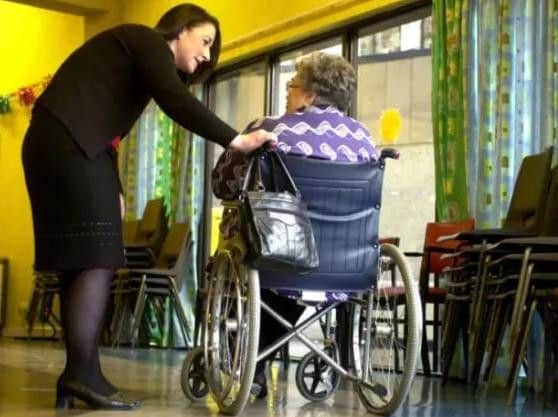Will dozens of night-shift care workers paid less than minimum wage in Northamptonshire get their money back?


In July a precedent-setting tribunal ruling found that residential care workers who routinely ‘sleep-in’ as part of on-call shifts should be paid the national minimum wage for those hours rather than a lower flat rate, as most traditionally had been.
Following the ruling, some 200 organisations employing carers - some of which were charities - were liable to pay up to six years in back pay to workers who were underpaid.
Advertisement
Hide AdAdvertisement
Hide AdThe total bill could be between £160 million and £400 million - though the Government has given employers until October to pay up.


Here in Northamptonshire, Unison fears that Northamptonshire County Council may not even be able to pay what some 100 workers who they believe are eligible for back pay.
Branch secretary Penny Smith said: "They did what every other employer did, what every other company did - but they still have to pay it back.
"I think they should, but in the current financial situation, they have difficult decisions to make. I am not sure they will be able to make those payments.
Advertisement
Hide AdAdvertisement
Hide Ad"I think the Government needs to step in to help them pay for this."


Earlier this week Northamptonshire County Council, which provides adult social care services across the county for elderly and vulnerable people, announced it was faced with making half-a-billion pounds worth of cuts by 2021 due to diminishing Whitehall funds.
But in July, Unison's national leader Dave Prentis railed against a decision by Her Majesty's Revenue and Customs (HMRC) to allow organisations until October to pay up.
It also wrote off historic fines and penalties for underpayment after pressure from sector leaders, such as Mencap.
Advertisement
Hide AdAdvertisement
Hide AdMr Prentis said: “Employers can’t now plead poverty and ask for an exemption from the law based on their own poor planning. The staff have done the work – now they should be paid for it."
Mrs Smith says she has received a number of calls from concerned carers who believe they are owed money in Northamptonshire - but who fear the county council's financial state will be used as an excuse to delay compensation.
"These are the lowest paid workers," she said. "This money will be a massive help to them, with Christmas around the corner.
"We need to make sure people pay up.
"I think HMRC should be given more teeth to go after those that don't pay."
Advertisement
Hide AdAdvertisement
Hide AdA county council spokesman said the authority is currently reviewing the new legislation.
He said: "This is new legislation, affecting the payments of sleep-in workers nationwide.
"We are currently reviewing our employee records over the past six years to see who is affected. We take into account outcomes of all relevant tribunal cases, and apply them to our policies accordingly.”